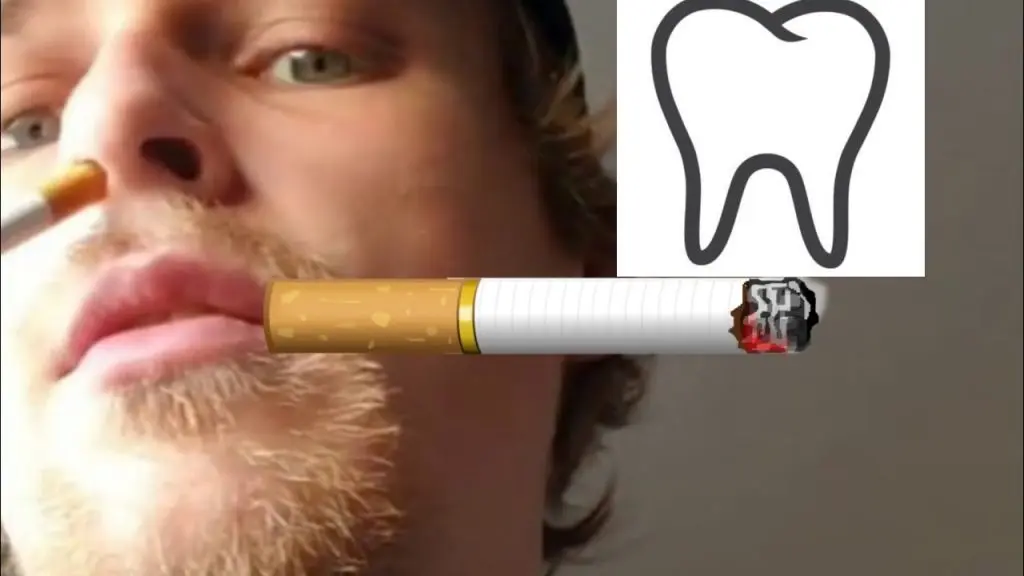If you've recently had a wisdom tooth extraction, you may be wondering if it's safe to smoke afterwards. Smoking after any dental procedure, including wisdom tooth extraction, can have negative effects on your healing process. In this article, we will explore the potential risks and complications associated with smoking after wisdom tooth extraction.
The Importance of Proper Healing
Wisdom tooth extraction is a surgical procedure that involves the removal of one or more wisdom teeth. It is important to allow your mouth to heal properly after the extraction to avoid complications such as infection, dry socket, and delayed healing.
Smoking can significantly impede the healing process. The chemicals in cigarettes can delay the formation of blood clots, which are essential for the healing of the extraction site. Additionally, smoking can constrict blood vessels, reducing blood flow to the area and inhibiting the delivery of oxygen and nutrients necessary for proper healing.
Risks of Smoking After Wisdom Tooth Extraction
Smoking after wisdom tooth extraction can increase the risk of developing complications such as:
- Dry socket: This occurs when the blood clot that forms after the extraction dislodges or dissolves, exposing the underlying bone and nerves. Dry socket can be extremely painful and may require additional treatment.
- Infection: Smoking weakens the immune system, making it more difficult for your body to fight off infections. This can increase the risk of developing an infection at the extraction site.
- Delayed healing: Smoking slows down the healing process by reducing blood flow and oxygen supply to the extraction site. This can result in delayed healing and a longer recovery period.
Alternatives to Smoking
If you are a smoker and have recently had a wisdom tooth extraction, it is highly recommended that you avoid smoking during the healing period. However, quitting smoking altogether is the best option for your oral and overall health.
If you find it difficult to quit smoking, there are alternatives you can consider during the healing period:
- Nicotine replacement therapy: Products such as nicotine patches, gum, or lozenges can help satisfy your nicotine cravings without the harmful effects of smoking.
- Support groups or counseling: Joining a support group or seeking counseling can provide you with the necessary guidance and motivation to quit smoking.
- Healthy distractions: Engaging in activities such as exercise, reading, or spending time with friends and family can help distract you from the urge to smoke.
How long should I avoid smoking after wisdom tooth extraction?
It is recommended to avoid smoking for at least 72 hours (3 days) after wisdom tooth extraction. However, it is best to consult with your dentist or oral surgeon for specific instructions based on your individual case.
What can I do to promote healing after wisdom tooth extraction?
To promote healing after wisdom tooth extraction, follow these guidelines:
- Take prescribed pain medication as directed.
- Apply ice packs to the outside of your face to reduce swelling.
- Eat soft foods and avoid chewing on the extraction site.
- Gently rinse your mouth with warm saltwater solution after the first 24 hours.
- Follow all post-operative instructions provided by your dentist or oral surgeon.
What are the signs of complications after wisdom tooth extraction?
If you experience any of the following symptoms after wisdom tooth extraction, contact your dentist or oral surgeon immediately:

- Severe pain that is not relieved by prescribed pain medication.
- Excessive bleeding that does not stop.
- Swelling that worsens after the first few days.
- Fever or chills.
- Pus or discharge from the extraction site.
Smoking after wisdom tooth extraction can have detrimental effects on the healing process and increase the risk of complications. It is best to avoid smoking during the recovery period and consider quitting smoking altogether for the benefit of your oral and overall health. If you have any concerns or questions, consult with your dentist or oral surgeon for personalized advice and guidance.
Note: This article is for informational purposes only and should not be considered medical advice. Always consult with a healthcare professional before making any decisions regarding your oral health.
If you want to know other articles similar to Smoking after wisdom tooth extraction: risks and alternatives you can visit the Dental health category.


Related Articles